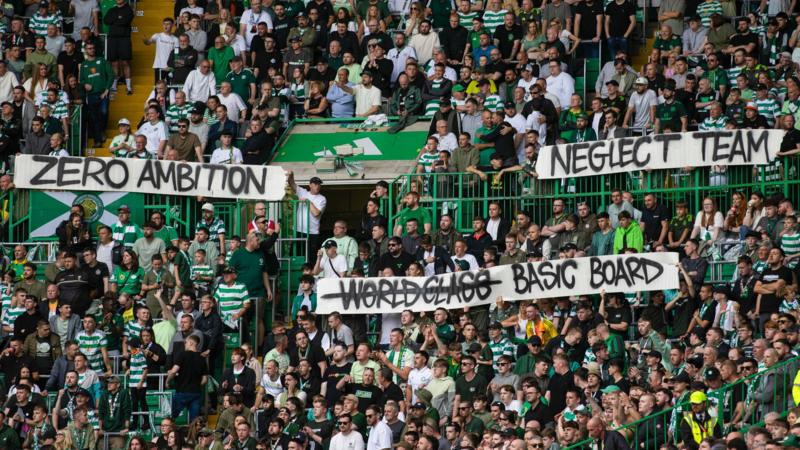Celtic's Transfer Blunder Ignites Outrage Among Pundits and Fans




In the world of football, the transfer window is as much about strategy and strengthening as it is about public perception and fan base reassurance. Celtic, a storied club with a rich history in Scottish football, recently found themselves at the center of a controversy that has stirred the pot among fans and critics alike. The club's handling of the latest transfer window has sparked a wave of criticism, described by some as a PR disaster.
The core of the discontent stems from what many perceived as an underwhelming transfer window, coupled with the club's attempts to justify their decisions publicly. Celtic, traditionally one of the powerhouses of Scottish football, is expected by its vast and passionate fanbase to recruit talent that will maintain or elevate the team’s competitive edge both domestically and in European competitions. This expectation comes against the backdrop of intense rivalry with Rangers, their Glasgow neighbors, where every transfer move is heavily scrutinized.
Critics have labeled the club’s justifications of their transfer strategies as "defending the indefensible." This phrase has been echoed across social media platforms and football forums, where fans express their dissatisfaction and confusion over the club's direction. The main criticism lays in the perceived lack of marquee signings that many believe are necessary to bolster the team’s lineup. In contrast, other clubs, including rivals, have made significant acquisitions, thereby heightening the scrutiny on Celtic's management.
The term "PR disaster" refers not only to the fans' reception of the transfer moves (or lack thereof) but also to the manner in which Celtic’s management communicated these decisions. Effective communication with fans is crucial, as football is as much about the emotional connection as it is about wins and losses. A club’s public relations strategy can significantly impact its brand perception and fan engagement. In Celtic's case, the initial defensive stance taken in various statements appeared to many fans as if the club was out of touch with their expectations and sentiments.
On the flip side, managing a football club's finances and strategic direction in modern football involves a complex balancing act. The economic impacts of the pandemic have not spared the sports industry, with many clubs reevaluating their spending and long-term strategies. Celtic’s decisions during the transfer window might have been influenced by such fiscal restraints, yet the communication of these factors seemed to have missed the mark in easing the fans’ concerns.
Moreover, the football transfer market is notoriously volatile, with deals falling through last minute and negotiations turning sour unexpectedly. The complexities involved in securing player transfers are immense and often not visible to the public. This behind-the-scenes uncertainty can sometimes lead to a public perception that clubs are not doing enough to secure top talent.
As Celtic move forward, the challenge will be to rebuild trust and ensure clearer, more effective communication with their fans. This involves not just providing transparent insights into the club's strategic decisions but also engaging with the fan community in a more meaningful way. Listening to fan feedback, addressing concerns openly, and involving them in the club’s narrative can help mend fences and restore faith.
In conclusion, while the uproar surrounding Celtic's recent transfer window dealings reflects a moment of tension, it also presents an opportunity. An opportunity for the club to reassess and enhance its relationship with fans, ensuring that the strategies employed not only strengthen the team on the field but also fortify the bond with its supporters. After all, football is nothing without its fans, and a club with the history and legacy of Celtic is set to navigate through this storm with the support of its loyal following.